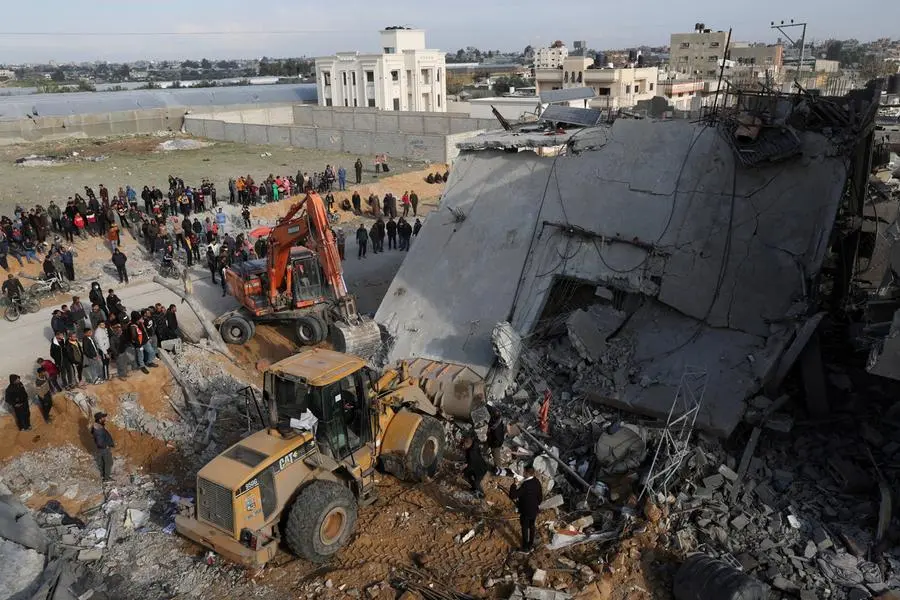PHOTO
The European Union on Monday warned Israel against launching an offensive in Rafah that ministers said would create a disaster for the roughly 1.5 million refugees crammed into the city on the southern edge of Gaza.
"An attack on Rafah would be absolutely catastrophic ... it would be unconscionable," Ireland's Foreign Minister Micheal Martin said before a meeting with foreign ministers from the 27 EU member states in Brussels.
"Over 1.5 million people are crowded into a very small corner of Gaza. They're weary, they are exhausted, they have nowhere else to go - how can anyone contemplate adding to that trauma?" he said.
Israel is preparing to mount a ground invasion of the enclave's southernmost city, which it has called a last bastion of Hamas control after nearly five months of fighting.
Defence Minister Yoav Gallant said on Friday the Israeli military (IDF) was planning operations in Rafah targeting Hamas fighters, command centres and tunnels, stressing that "extraordinary measures" were being taken to avoid civilian casualties.
Israel accuses Hamas fighters of hiding among civilians, something the militant group denies.
But EU foreign policy chief Josep Borrell said that avoiding those casualties would be impossible.
"We have to continue putting pressure on Israel to make them understand that there are so many people in the streets of Rafah, it will be impossible to avoid civilian casualties," he said.
"This, certainly, will be against the respect of humanitarian law."
German Foreign Minister Annalena Baerbock also called on Israel to respect humanitarian law, but added Israel had the "right to self-defence" as she said it was clear that Hamas fighters were still operating from Rafah.
"The most important thing would be that Hamas would lay down its weapons," she said.
"But Israel has to comply with international humanitarian law. Over a million people went to the south of Gaza because the IDF told them so. They can't just disappear in the sky."
Baerbock repeated her call for a "humanitarian ceasefire", to allow refugees to go back home in the north of Gaza.
(Reporting by Bart Meijer; Editing by Sharon Singleton)





















